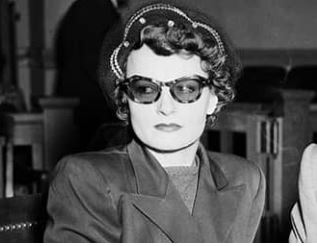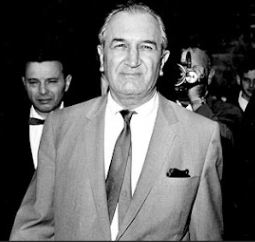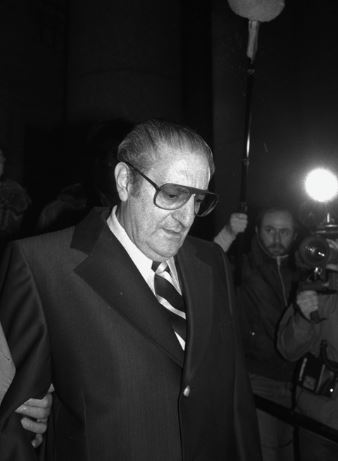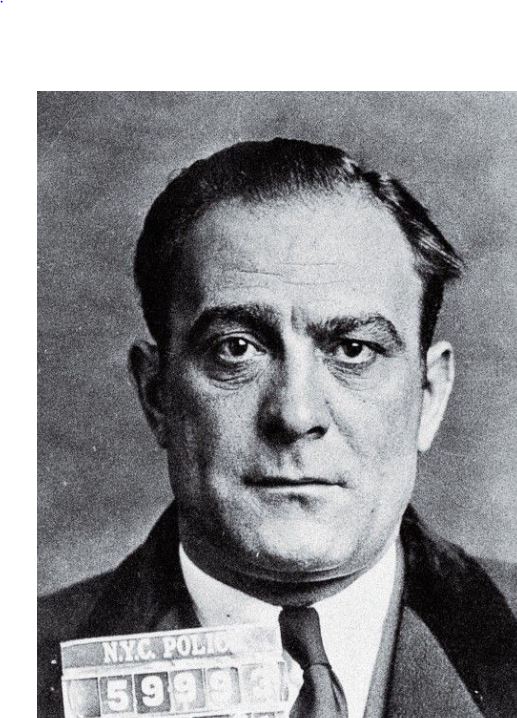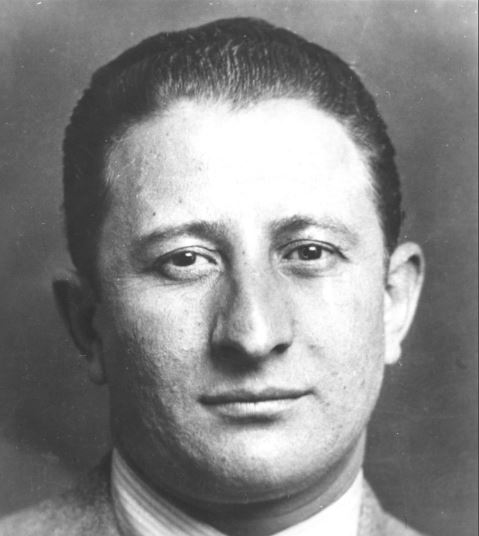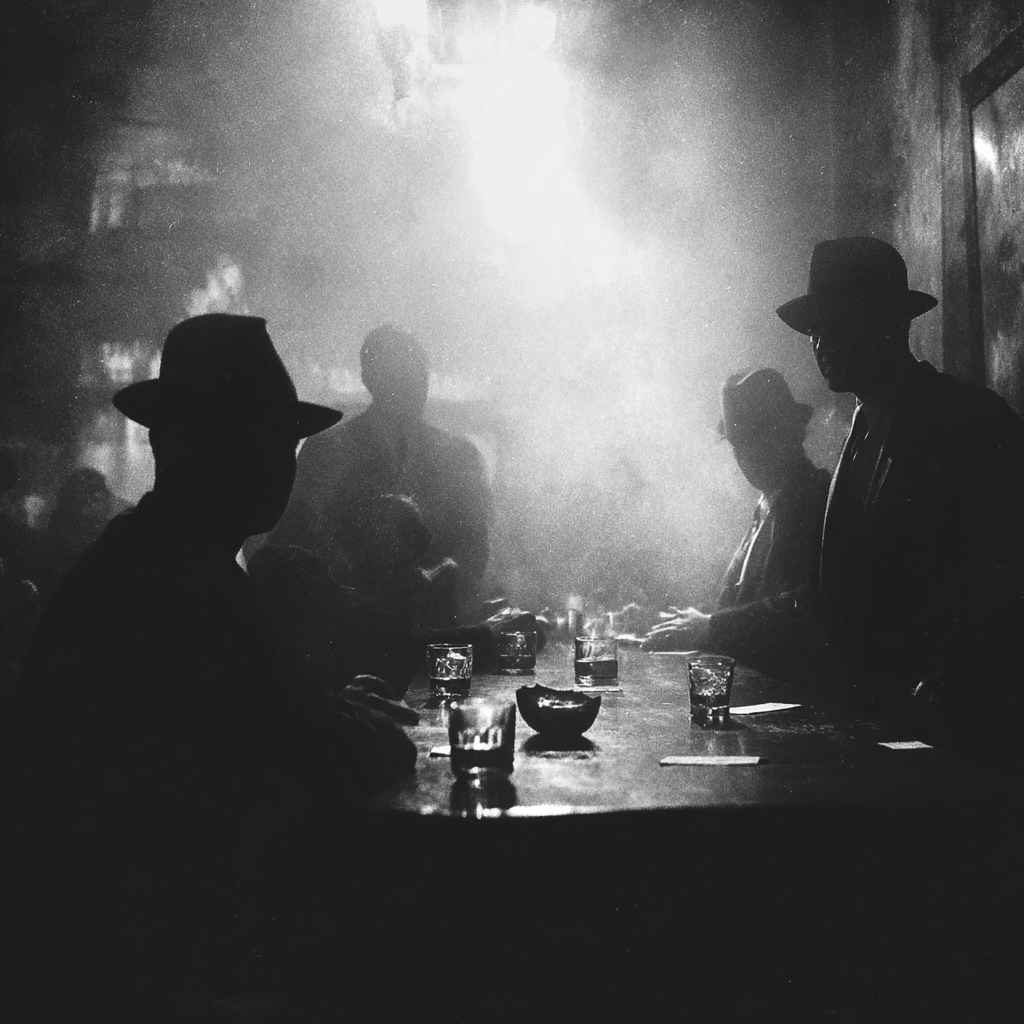In the shadowy postwar glamour of 1940s Los Angeles—a city basking in golden sunlight while brooding with noir undertones—few names inspired as much hushed awe and whispered scandal as Brenda Allen. Known to some as Maria Mitchell and behind closed doors as the reigning madam of the infamous “House of Francis,” Allen orchestrated an empire of pleasure that stretched from the sun-soaked streets of Hollywood to the backrooms of power in City Hall. But her story wasn’t just sex and stardust—it was a tale of extortion, betrayal, Mafia ties, and a little black book that could bring the city to its knees.
The Rise of the Queen Bee
Brenda Allen didn’t just run a brothel—she ran the brothel. The House of Francis, named after a prior madam, was located discreetly in upscale neighborhoods, catering to a clientele that included Hollywood elite, high-ranking LAPD officers, judges, and politicians. To call it prostitution would be a disservice to the efficiency and sophistication of the operation. Allen ran her house like a corporate enterprise, with coded phone lines, rotating safehouses, and even background checks on her girls and clients. She was polished, intelligent, and unshakably discreet.
What set Allen apart wasn’t just her beauty or business acumen—it was her Rolodex. Her list of clients read like the credits of a noir film: studio executives from MGM, Universal, and Paramount; judges with the power to bury a body or a scandal; LAPD brass; and a few men whispered to be lieutenants in the West Coast wing of the Mafia.
In the dark corners of Hollywood, Allen’s black book was more valuable than any gold statue handed out on Oscar night. And she knew it.
Pleasure and Protection: A Dangerous Balance
Allen’s protection wasn’t official—but it was real. Her empire thrived with the silent blessing of the Los Angeles Police Department. She was regularly tipped off before raids. Competitors found themselves arrested or mysteriously relocated. And when Allen wanted to expand her operation or shut someone down, she made a few quiet calls and the city bent to her will.
But there was a price to pay. LAPD Vice Squad Sergeant Elmer V. Jackson wasn’t just one of Allen’s protectors—he was her lover. He fed her intel, protected her girls, and in return enjoyed the spoils of the empire: money, sex, and influence. He wasn’t alone. Several high-ranking officers were suspected of being on Allen’s payroll or frequenting her establishments. The relationship between Allen and the LAPD became symbiotic—and toxic.
It was a time when corruption oozed from the city’s foundations. Mayor Fletcher Bowron, elected to clean up after the era of gangster-friendly Mayor Frank Shaw, was struggling to purge the LAPD of its rot. Allen’s success in the face of this “clean-up” effort raised eyebrows. How could she remain untouched while lesser madams were thrown behind bars?
The answer: Her client list.
She wasn’t just protected—she was protected because of who she knew. If she fell, she wouldn’t fall alone.
The Mob’s Madame
Brenda Allen wasn’t just connected to the LAPD. She had ties to the underworld that stretched across state lines. Whispers floated that her girls were sometimes flown out for high-stakes parties in Vegas, Miami, and even Havana—where Mafia bosses mingled with celebrities and politicians.
In Los Angeles, the mob was represented by shadowy figures like Jack Dragna, the old-school don who ruled the city with a quiet, calculating ruthlessness. While Dragna preferred to keep his operations out of the headlines, many of his soldiers—particularly those involved in gambling and vice—knew Brenda Allen. Some claimed she paid street taxes to the family. Others believed she had a more intimate relationship with one of Dragna’s lieutenants, a liaison who ensured the mob got what it needed: influence over the LAPD and dirt on powerful men.
Allen was useful to the Mafia. Her brothels were perfect for information gathering, blackmail, and favors. A camera placed in the right drawer. A conversation overheard. A client’s weakness recorded and stored. She was a madam, yes—but also a silent archivist of sin.
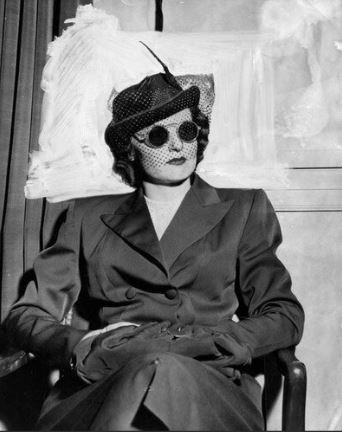
The Fall Begins with a Whisper
By 1948, Allen had been in business for nearly a decade, raking in the equivalent of millions annually, with her girls pulling in $1,000 a week—an astronomical sum at the time. But empires, no matter how discreet, eventually attract the wrong kind of attention.
That attention came in the form of wiretaps.
The LAPD, facing increasing pressure to clean house, began tapping phones and tailing suspects. They didn’t know what they were looking for—but what they found was explosive. A wiretap picked up a conversation between Allen and Jackson, dripping with innuendo and logistical planning. It wasn’t just a love affair—it was conspiracy, corruption, and complicity.
When the story broke, it was front-page scandal. Brenda Allen’s arrest and the exposure of her affair with Jackson triggered a firestorm. Citizens demanded justice. The LAPD, already under scrutiny for systemic corruption, found itself in crisis mode.
Allen, ever calculating, remained mostly silent. She was arrested, charged, and tried—but never named names. She could have burned the city to the ground. She could have released her little black book and destroyed marriages, careers, and reputations.
But she didn’t.
Why Didn’t She Talk?
Some say she was loyal. Others say she was paid off handsomely to keep her mouth shut. But those closest to the case believed Allen made a simple, cold-blooded calculation: If she talked, she wouldn’t live to see another trial.
Her connections to the mob meant she had protection—but also boundaries. The Mafia doesn’t appreciate loose ends. Revealing client names, especially if they included Mafia-affiliated judges or businessmen, would have been suicidal. Allen knew too much—and too many people wanted that information buried.
Instead, she took a deal. She was convicted on conspiracy charges and sentenced to a brief prison term. She vanished from public view shortly after her release. Some say she moved to Florida under another alias. Others claim she stayed in Los Angeles, living modestly off hush money and the favors owed to her by powerful men.
Legacy of a Madame
Brenda Allen never became a folk hero like Heidi Fleiss or a tragic figure like the madams of New Orleans’ Storyville. But in the smoky alleys of Hollywood history, she remains an enigmatic icon: a woman who built a forbidden empire in a city of illusions, who played both the cops and the crooks, and who managed to walk away when everything came crashing down.
Her silence was deafening.
Her influence was undeniable.
She was the queen of a kingdom built on secrets—and she took most of them to her grave.
In the end, Brenda Allen didn’t just sell sex. She sold access, power, and silence—and in 1940s Los Angeles, that was the most valuable currency of all.

